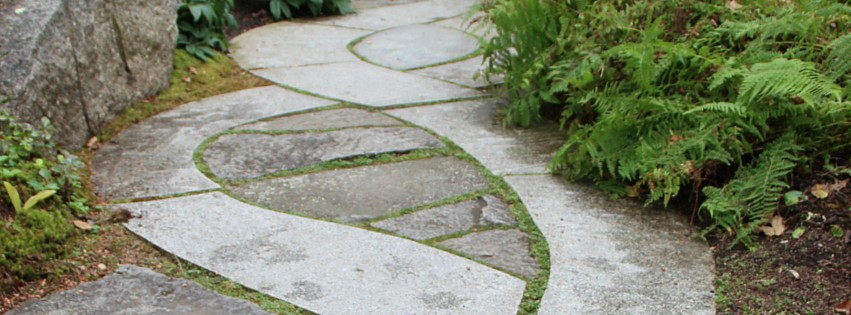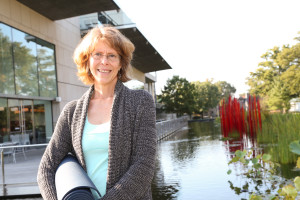I started teaching prenatal yoga 15 years ago, before it was a “thing.” Having worked with pregnant women as a massage therapist and a doula, I was able to integrate some pregnancy-related information into my classes. But I was so focused on poses that most of this knowledge transfer happened after class, outside the entrance of the yoga studio. My classes were reasonably well attended, but something was missing.
In 2002, I traveled to Seattle to study with one of the nation’s premiere prenatal yoga instructors – Colette Crawford. Unlike my classes, which had a set 6-week time frame and focused on asana practice, Colette’s were ongoing and included a facilitated “sharing circle” at the beginning of each class. The things people shared were profound. Something magical was happening.
I brought Colette’s model back to Richmond and changed the structure of my program. Within six months something magical began happening in Richmond, too. The prenatal classes blossomed – at their peak, nearly 100 women at various stages of pregnancy, from first trimester to 42 weeks, were attending five weekly prenatal classes. In addition, I taught a weekly postpartum class and soon added two classes focused on infant and toddler development. Essentially, I had a program that extended from pregnancy through the first two years of parenthood.
Many of my students reported back that what they’d learned in class – through the combination of yoga, evidence-based information, and the shared stories of other mothers – changed the way they approached their birth, resulting in an empowered experience. And I began to notice that friendships were forming that long outlasted the classes: my students were raising their families together.
In 2005, the same year I branded the program as OmMama, I attended a Centering Pregnancy training. Centering is a model by which women at similar stages of pregnancy meet regularly in small groups facilitated by a care provider. As trainees discussed data coming out of Centering model – higher birth weights, decreased incidence of preterm birth and postpartum depression, and mothers who continued their relationships well beyond pregnancy – I realized I’d been facilitating a similar model, only in greater numbers, over a longer period of time, with women who were at wildly different ends of the pregnancy and postpartum continuum, and with the added benefit of physical activity.
Magic was happening in the interaction between these mothers.
The mothers in their first trimesters were learning from the mothers in their third trimesters. The moms with six-month olds validated the overwhelm experienced by those with six-week olds.
As they shared their stories, mothers were normalizing the often complex feelings and experiences that can surround pregnancy, birth, and early parenting. Moving, laughing, crying, they were transforming one another.
The moms in my classes were vocal about their struggles, such as not really wanting to be pregnant, or feelings of shame or vulnerability evoked by their changing bodies and emotions. Or frustration at not having their needs met by their healthcare providers, the inability to easily access accurate information, how services were scattered all over town, and how certain services were priced out of their reach. Not having a place to go where their needs could be acknowledged and supported. And frequently, that the services they valued most were out of their financial reach (I consistently had students on scholarship in all of my classes).
And in my postpartum classes, women were beginning to voice concerns about their own mental health and ability to cope with the demands of early parenthood.
Always, other mothers were there with words of understanding and empathy.
I found myself becoming an unofficial referral source, with women contacting me to find resources related to pregnancy, birth, and postpartum. I received calls from women who’d lost a baby, or those seeking guidance on how to support a friend or family member who experienced a pregnancy loss.
These women were in crisis, and calling a yoga teacher to figure out where to get help felt like a pretty inefficient model. Getting support shouldn’t be that complex when you’re concerned about pelvic pain, anxious about giving birth, struggling with breastfeeding, or discovering that your child has a health condition. Or when you’re falling apart at the seams because life with a newborn can be so relentless.
So I began to sketch notes for a maternity center, for a safe place where pregnant women and new parents could come for direct services and face-to-face interaction with other mothers. A clearinghouse where women could quickly and easily access community resources. A place that honored childbirth and early parenting as one of life’s most vulnerable and empowering experiences.
With the help of mothers, health care providers, perinatal support professionals, and childbirth advocates, the notes I sketched a decade ago are taking form. Nurture’s goal of establishing a center for Richmond’s childbearing families is closer than ever. Our mission’s four pillars – Move, Learn, Connect, Inspire – reflect evidence-based strategies for improving birth outcomes: fitness, education, social support, and community engagement.
By providing expecting and new parents at every income level with access to healthy physical activities, evidence-based educational programs, opportunities for peer and professional support, we set them up for the best possible birth and early parenting outcomes. By providing leadership in training professionals and educating the public about the many factors that impact maternal/child health, we improve the environment that surrounds childbearing women and families.
Our dream for a maternity resource center is taking form but it has not yet materialized. Dreams turn into reality through the actions of hearts and hands. Castles are anchored with bricks, mindfully set in place by real, honest-to-goodness people.
We invite you to join us in making this dream a reality. You can help by joining our board or one of our committees, by making a tax-deductible donation, by connecting us with influential people in the RVA community who can help us move this vision forward.
Our children, and our children’s children, are counting on us.
Leslie Lytle, MS, LCCE, E-RYT500, is a mother, wife, yoga teacher, and childbirth advocate who thrives on connecting people with resources and facilitating growth. Leslie has worked with pregnant women since 1992, taught prenatal and postpartum yoga since 2000, and is a Lamaze Certified Childbirth Educator. She looks forward to the time when Richmond is known far and wide as a mother/baby/family friendly city.


